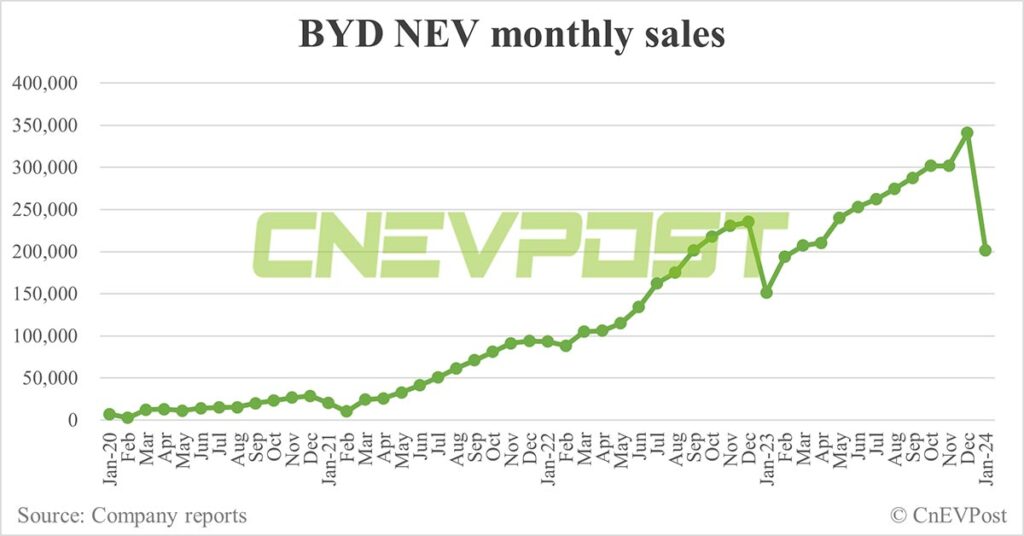BYD‘s sales were lower in January, as seasonal factors affected almost all of China’s major carmakers, while its overseas sales continued to hit a record high.

BYD (OTCMKTS: BYDDF) reported lower sales in January compared to the previous month, as seasonal factors affected almost all major Chinese automakers.
The company sold 201,493 new energy vehicles (NEVs) in January, up 33.14 percent year-on-year but down 40.92 percent from December, according to a Hong Kong stock exchange announcement today.
BYD ceased production and sales of vehicles powered entirely by internal combustion engines in March 2022, switching to focus on the production of plug-in hybrids (PHEVs) and battery electric vehicles (BEVs).
BYD’s NEVs include passenger cars as well as commercial vehicles, with passenger NEVs selling 201,019 units in January, up 33.87 percent from 150,164 units a year earlier, but down 40.91 percent from 340,178 units in December.

BYD’s commercial NEVs sold 474 units in January, down 59.73 percent from 1,177 units in the same month last year and down 45.20 percent from 865 units in December.

Among passenger NEVs, BEVs sold 105,304 units in January, up 47.61 percent from 71,338 units in the same month last year, but down 44.80 percent from 190,754 units in December.

BYD’s sales of passenger PHEVs in January were 95,715 units, up 21.43 percent from 78,826 units in the same month last year, but down 35.94 percent from 149,424 units in December.

In January, BYD sold 36,174 vehicles in overseas markets, a record high. This was up 247.53 percent from 10,409 in the same month last year and up 0.22 percent from 36,095 units in December.

BYD first announced its overseas sales figures for NEVs in July 2022.
In addition to being China’s largest NEV company, BYD is also China’s second-largest power battery maker.
BYD’s installed capacity of power and energy storage batteries was about 11.309 GWh in January, up 38.79 percent from 8.148 GWh in the same month last year but down 36.27 percent from 17.746 GWh in December.


